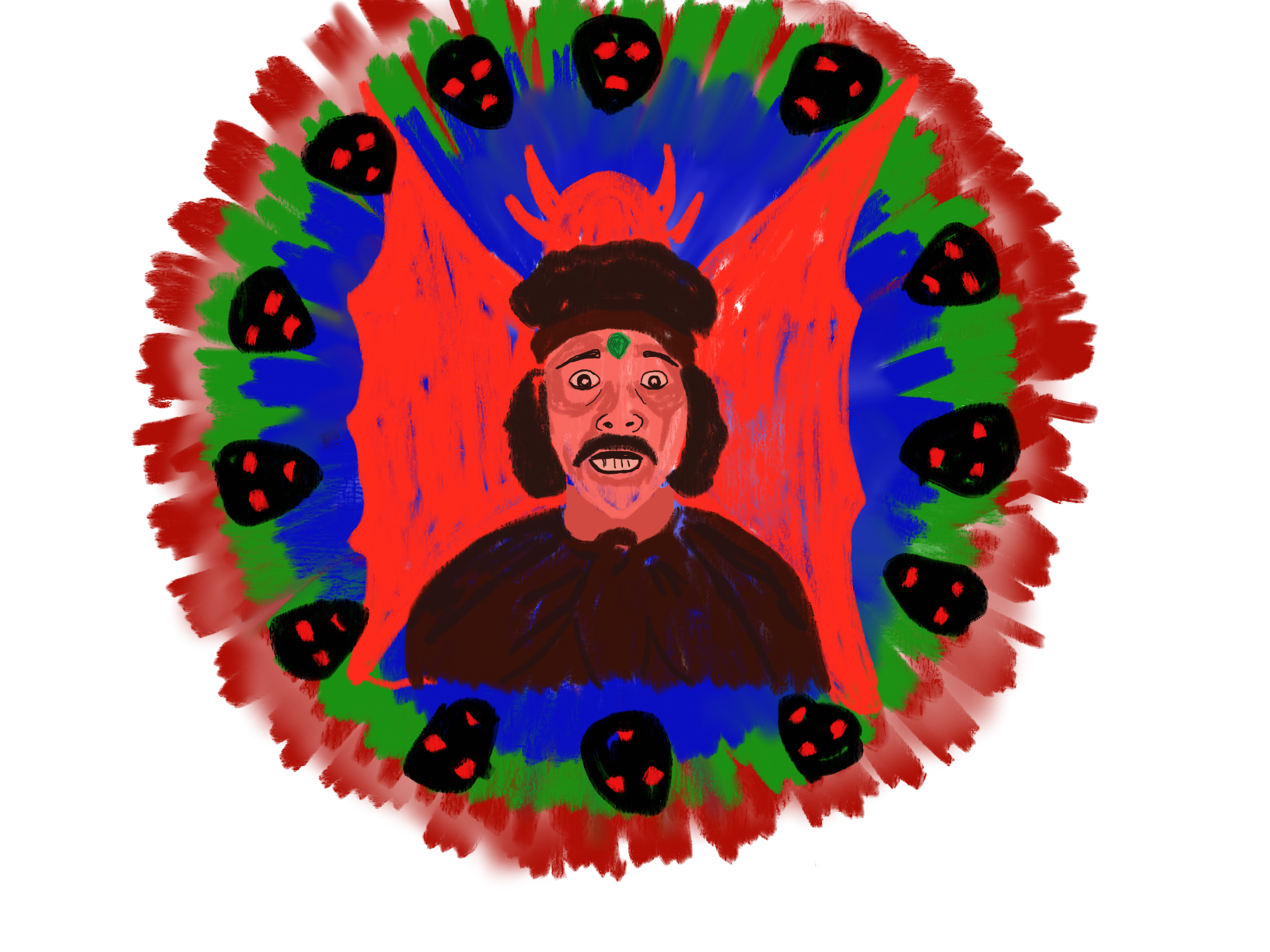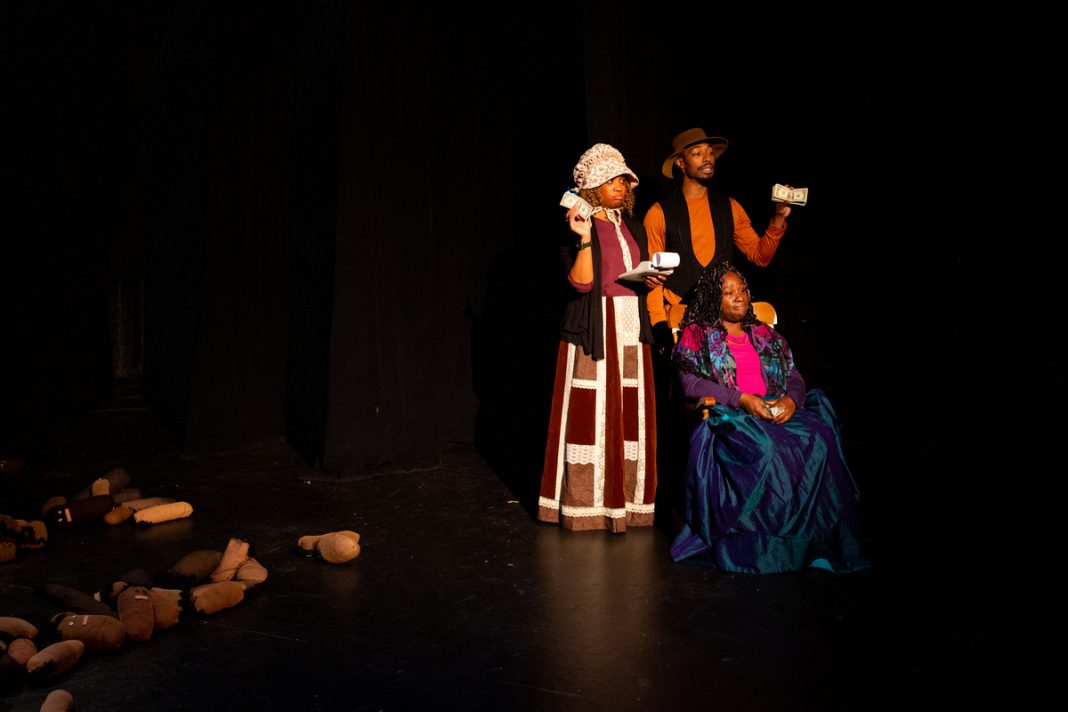Director Samantha Van Der Merwe and her theater company produced a rendition of Euripides’ genre-defining tragedy Bakkai that captures the subversive nature of the original work without losing their modern audience.
Bakkhai ran at Shaking the Tree Theatre from Oct. 4–Nov. 2 with its own interpretation of the original play. Debuted posthumously after Euripides’ death in 405 BCE, Bakkhai is one of the most performed tragedies in history. The playwright made nothing definite in the work which aims only to capture the nature of the god Dionysus. Using a new translation by poet Anne Carson, Shaking the Tree offers one interpretation of the work, representing Dionysus as a symbol of change and subversion that the audience must come to accept on the deity’s own terms.
As one enters the theater, they’re immediately greeted by a long, ornamented green dress the size of the stage. The dress draws the viewer’s eye up to a small throne at the back end of the stage where a figure with hair in the shape of faun horns, clad in jewelry and feathers, sits with their eyes closed. This long green dress was the first thing that Van Der Merwe envisioned as she read the script for Bakkhai, a “spectacle piece” that allows the audience to immediately notice the larger-than-life nature of the protagonist Dionysus.
This air of mystery didn’t dissipate. As the lights began to dim the figure rose from his chair and spoke “Here I am, Dionysus.” Carson’s translation, first performed at the Almeida in London in 2015, sparkles from the first line. The daemon’s words seem to slip out of actor Aries Osiris’ mouth as they strut forward, every eye in the audience waiting for their next move. The chorus dance and twirl and gossip around their deity. They are the Bakkhai. The figure before them is Bachus, now disguised as man.
The plot of the play focuses on Dionysus coming into Thebes and turning the women of the city into his followers, the Bakkhai. The king Pentheus, played by Zak Westfall, refuses to recognize the divinity of Dionysus despite his own mother joining the Bakkhai. The tragedy of the family plays out without much further intervention from Dionysus. The god spends most of the play giving Pentheus chances to change course, at last letting punishment fall upon him. This is where Van der Merwe sees the play as ultimately relevant today.
“For me, Dionysus represents change and inclusivity. The establishment doesn’t like change. The establishment is holding on so tightly to that power,” Van der Merwe said. Pentheus and his family are ultimately forced to change, with grave consequences for their family and for Thebes.
Bakkhai was originally a genre-shifter, in part, because the chorus is integrated into the plot. In traditional Greek theater the chorus serves as the author’s “footnotes,” standing to the side and sing-shouting information that the audience might want to know. In Bakkhai, the chorus is an integral part of the plot that interacts directly with characters in the play. The five chorus members in Shaking the Tree’s production work to great effect to show this dynamic and perhaps suggest how unique it is.
“I wanted the songs set before we started putting everything else together,” Van der Merwe recalls, speaking about the chorus. The decision paid off. The chorus sings in pairs and triplets, shifting harmonies that help capture the feeling of change and friction that draw the audience into the timeless story.
Bakkhai finished its run on Nov. 2, but Van der Merwe is looking forward to continuing to challenge the status quo in Shaking the Tree’s next production, The Banquet. Running Jan. 31–Feb. 22, The Banquet is described as a “theatrical exhibition” of a banquet for the dead. If it’s anything like Bakkhai, Shaking the Tree is in for a rich and compelling season of theatre.






